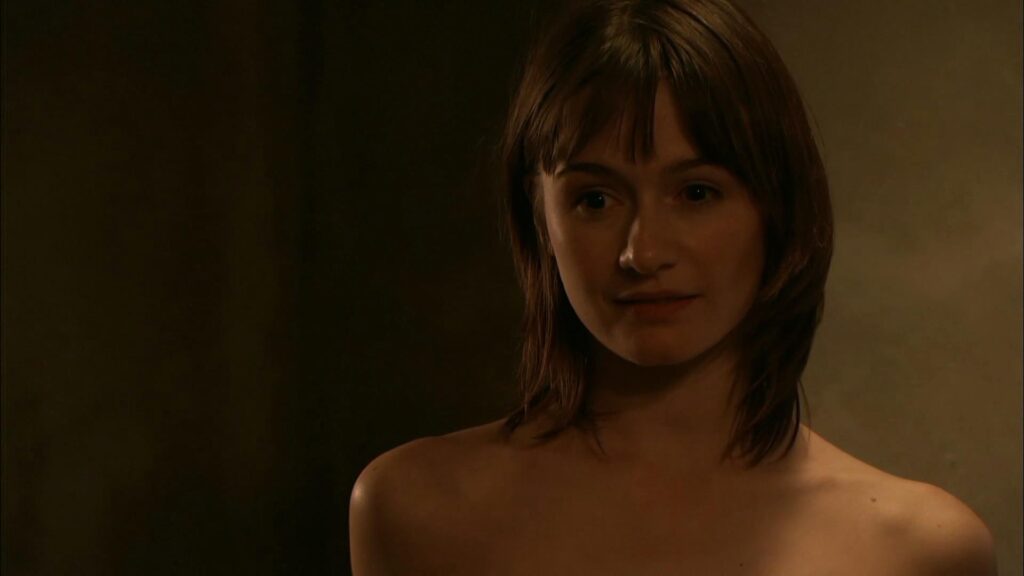Written and directed by Nicole Holofcener
I am not opposed to nudity in movies. As with violence, swearing, and other transgressions, I am staunchly opposed to it when its sole purpose is to titillate. Nudity for the sake of sensationalism betrays an artistic laziness similar to blowing something up or swooping in with an unnecessary drone shot. Worse, many actresses (and some actors) have confessed to feeling exploited during nude scenes. In 99.999% of cases, it would have served no creative purpose.
The remaining .001% consists of maybe three scenes that I can think of. One of those is the jaw-dropping centerpiece of Lovely & Amazing. It that starts with an ordinary sexual encounter, then blooms into a heart-rending examination of every modern woman’s discomfort with her body. I’m a man with only an abstract comprehension of this insecurity. After this scene, I understand it a little better.
Lovely & Amazing is all about female insecurity. The three adult women struggle with it in different forms. There is the mother Jane, played by Brenda Blethyn. Conscious of her weight, she goes in for a liposuction procedure that goes wrong. Adult daughter Michelle (Catherine Keener) is adrift, looking for purpose. She has a daughter, now school-aged, and rather than spending the night with husband Bill (who’s blandly off-putting in the way many husbands are), Michelle likes to sneak into her little girl’s room and climb into bed with her. The snuggles she gets from her daughter are more satisfying, it seems.
And then there is Elizabeth, the other daughter who’s an actress. This is the first movie I saw Emily Mortimer in, and she hooked me in from the very first scene, where she suspects she’s being sexually exploited but goes along because she doesn’t want to be seen as “difficult.” She goes to auditions where casting directors and producers discuss her appearance as if she’s not even there, like they’re judging sheep at an ag fair. She enters into a sexual relationship with movie star Kevin, played by Dermot Mulroney. It’s here the pivotal nude scene commences. As it played on, it changed from one about sex to one about self-judgment. Mortimer is fearless, speaking for every woman who’s dealt with body image problems. I realized I was watching one of those great movie scenes unfold—it was thrilling, but it was also unsettling. I looked upon Mortimer’s fully nude body and was forced to see a person, a fully realized human being. Usually a naked woman in film signifies something else. Laura Mulvey would have cheered.
I forgot to mention Lovely & Amazing is a comedy, one bristling with irony, folly, and warmth. The best comedies use laughs as a cover for something deep and affecting. Women I know laugh at problems with body image, empty nests, loveless marriages, and stalled careers so they don’t cry. These women are beautifully drawn, with foibles you find in people you know. Exempli gratia: Jane adopts Annie, a Black tween who is overweight in the way many tweens are. But she sees her new mother’s obsession with size and reacts with occasional binge eating. She asks volunteer Big Sister Aunjanue Ellis to straighten her hair, a move that horrifies Jane. We get the sense that the wealthy White Jane wants a young Black charge for a host of reasons: to fill her maternal void, virtue signaling, and yes, also compassion. Ellis’s Lorraine doesn’t get off scot-free—when she meets Annie, the do-gooder is disappointed she didn’t draw a poor Little Sister. “My real mother was a crackhead,” Annie mentions reassuringly.
Other hilarious elements: Michelle’s “art” is an all-over-the-place endeavor that goes from fairy furniture to custom wrapping paper. Her failure and desperation as an artist mirror her expression as a human being, which is why she begins an affair with the creepily admiring Jake Gyllenhaal. Another funny scene: the audition where Elizabeth meets Kevin. The mixing of sexual harassment with physical and verbal comedy is both unnerving and funny. The first meetings between these two couples have one thing in common: they start with traditional male harassment (Gyllenhaal’s character won’t give Michelle a job until she smiles), but then the women turn the sexual dynamic upside-down—Mortimer with her nude scene and Keener with—well, let’s just say Gyllenhaal’s character is underage.
Maybe I’m wrong, but I think only a woman could make Lovely & Amazing. Nicole Holofcener’s script is smart, incisive, and achieves a lot in a short running time. The brilliant Keener was just coming off her mainstream breakthrough in Being John Malkovich, and she shows more of her comic mettle in this film. Keener would go on to do several more films with Holofcener. When a collab works, you stick with it.
The budget is clearly small. It also has what I think of as “indie movie pacing”—more relaxed and spacey rather than hurtling from one edit to the next. As someone who attempted to make an indie comedy, I can report this is tricky ground. Most independent comedies suffer from two major flaws: editing that is too relaxed (read: slow) and atrocious acting. Lovely & Amazing never lags, and all the performers disappear into their sad, funny worlds with aplomb. Holofcener and her team hit this one out of the park.
Lovely & Amazing was not a profitable movie, and it did not enjoy a wide release. I’m not even sure how my wife and I saw Lovely & Amazing. When it came out, we were living in a small town preparing for the arrival of our first child. Maybe we saw it years later on DVD. However it happened, that scene left a lasting impression on me. I’ll probably never write or direct anything like it. There’s no way I could.

